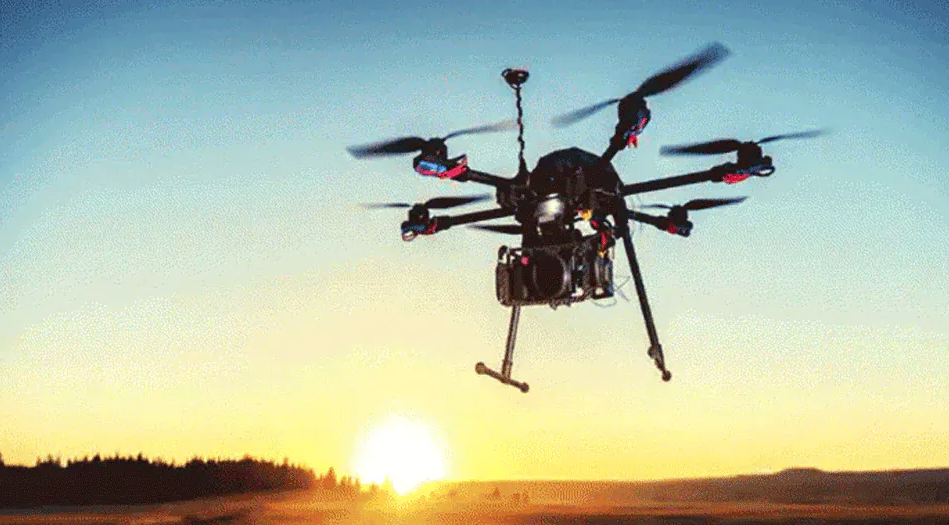"Will affect livelihood," Kashmir photographers unhappy with new order banning drones

On July 4, a week after the Jammu drone attack, which was the first of its kind in Jammu and Kashmir, the district administration of Srinagar banned drones and other unmanned aerial vehicles in the district. The order directed those owning or possessing drone cameras or other similar kinds of unmanned aerial vehicles to deposit them at local police stations. The order has left many photographers in Kashmir apprehensive and fearful of earning a decent livelihood.
Auqib Javeed | TwoCircles.net
SRINAGAR – On July 5, 27-year-old Burhan Nazir—a young wedding photographer handed over his drone camera to a local police station in Srinagar, the summer capital of Jammu and Kashmir. Nazir had bought his drone at Rs 2 lakh from New Delhi to make a living as a photographer. However, the recent government order banning drones in Srinagar has come as a dagger to Nazir's livelihood.
Talking to TwoCircles.net, Nazir said that he was given a receipt at the police station after depositing his drone. “I deposited my drone camera, charger, battery and some accessories at police station RajBagh in Srinagar," he said.
On July 4, a week after the Jammu drone attack, which was the first of its kind in Jammu and Kashmir, the district administration of Srinagar banned drones and other unmanned aerial vehicles in the district.
In an order, the Deputy Commissioner of Srinagar Mohammad Aijaz Asad directed those owning or possessing drone cameras or other similar kinds of unmanned aerial vehicles to deposit them at local police stations.
The order, however, exempted government departments from using drones for mapping, surveys and surveillance in agricultural, environmental conservation and disaster mitigation sectors but directed them to inform the local police station before using them.
The ban on drones has hit dozens of young and talented wedding photographers in Srinagar, who would use drones on wedding ceremonies, or for travel photography to get an aerial view of the beautiful Kashmir valley.
Over the years, the use of drones in weddings has picked up and has become a trend in Kashmir with many youth investing a handsome amount of money to add drone technology to their armour and increase their income.
“I used to work in different Bollywood songs and would provide them with the aerial landscape of the Kashmir Valley. This was benefiting us in two ways. We would get to know about the beauty of Kashmir and we would earn a good amount of money,” Nazir told TwoCircles.net.
However, the latest order has left Nazir and scores of other photographers in Kashmir apprehensive.
Witnessing back to lockdowns since the abrogation of Article 370 in August 2019, Kashmir's economy has taken a hit. The conflict-dominated region has the highest number of unemployed people leading to a mental health crisis for its people.
As reported earlier, the valley is witnessing rising cases of suicides amid the pandemic, which the mental health experts are blaming on "joblessness."
As per observers, the new order banning drones has added to the anxiety of the youth who work as photographers, or who use drones in their work.
Through this order, the administration also cautioned that any violation of the guidelines will attract punitive action, and directed police to implement the restrictions in letter and spirit.
“What should we do? Why won’t they allow professional photographers to do our job? We will go through mandatory verification and can co-operate with the authorities,” Nazir said.
Nazir's company “Creative Photography Kashmir” would offer a package to couples for a pre-wedding shoot in Kashmir. "The use of drones in the package would be the “selling point,” Nazir said.
“Now we just have a camera and the gimbal. We can’t afford other big equipment like cranes etc for film making,” Nazir told said.
Nazir said he doesn't know what to tell the families in Srinagar, who have booked him for shooting their wedding ceremonies and "where usage of drones has been assured."
"What should I tell them now?" he asked.
Bilal Ahmad Dar, an ace cinematographer from Srinagar, has a different opinion. He argues that the extensive use of drones by the youngsters in Kashmir has created a “mess”. "As a result, the administration is finding it hard to distinguish between a professional photographer and those who just use it for fun," he explains.
Dar, however, believes the administration should have started a licensing and verification program. "They should have allowed only the genuine drone users to operate,” Dar, who runs "Kashmir Creative forever” and has over 42K followers on Instagram, told TwoCircles.net.
Dar said a professional drone user will never misuse the drone and knows its pros and cons.
Like Nazir, another photographer Aadil Rehabar is also planning to hand over his drone to the local police station.
“Do I have any option rather than handing over my drone to the police,? Rehabar told TwoCircles.net.
He said that the addition of drones has been beneficial for photographers in Kashmir. "Drones gave a new look to the stunning Kashmir landscape and people outside the valley would love that," he said.
Rehabar said the "people from the rest of the country want to see the meadows, mountains, lakes and other aerial views of the valley."
"Now with this order, the outsiders can't see it. And as a result, people who use drones for showcasing the beauty of Kashmir will suffer and their business will be hit," he said.
Rehabar said the decision to ban drones in Srinagar (the ban was later extended to other districts) is not well thought out.
“I failed to understand why the administration decided to ban professionals from using drones, without even giving a thought to what would happen to our livelihood,” Rehabar, who runs “Kashmir Capture” on Instagram having over 16K, added.
Auqib Javeed is a Srinagar-based journalist and tweets @AuqibJaveed.
